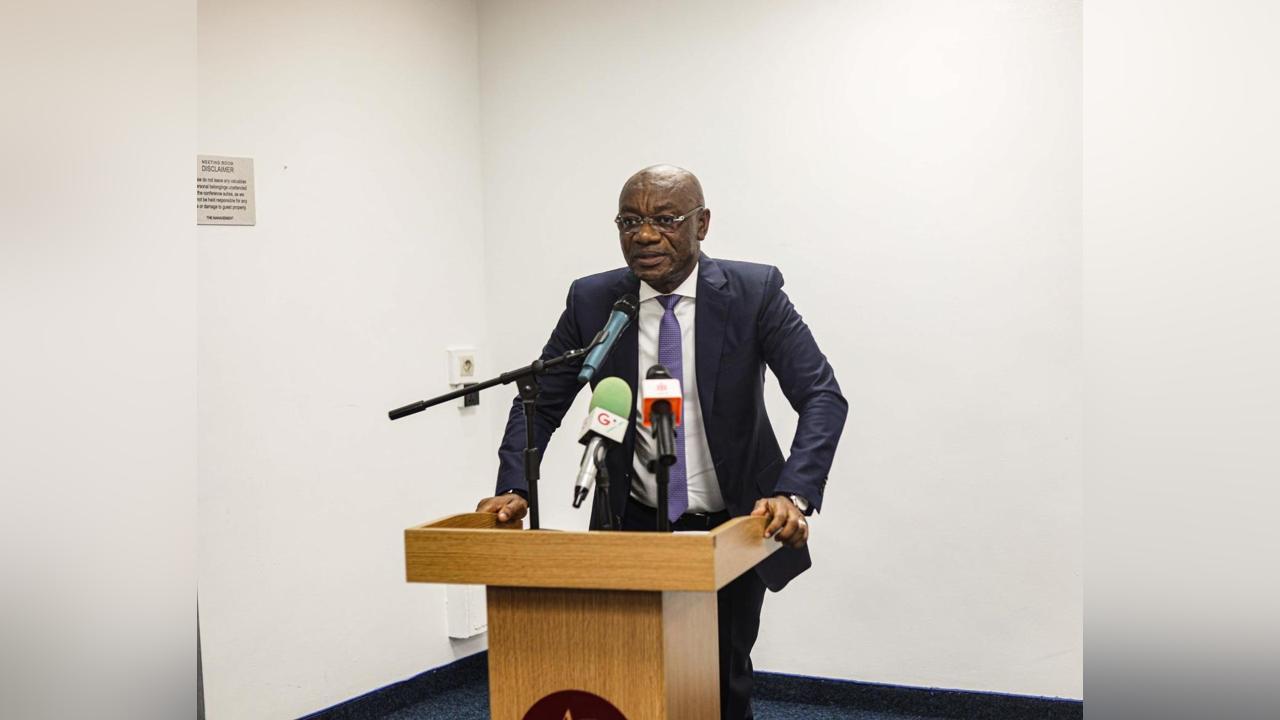Africa-Press – Ghana. Mr Kwasi Agyei, the Controller and Accountant-General, Thursday reiterated plans to migrate government institutions to a secure electronic payment system by the first quarter of 2026.
The move, he said, would strengthen the integrity, efficiency, and transparency of public financial management in Ghana.
Mr Agyei made this known during a consultative meeting in Accra by the Controller and Accountant General’s Department, the Ministry of Finance, and Managing Directors of Commercial Banks.
The meeting was to discuss the Ghana Integrated Financial Management Information System (GIFMIS), the Ghana Interbank Payment and Settlement Systems (GhIPSS), and the Electronic Fund Transfer (EFT) initiative.
The EFT was developed to enable covered entities (ministries, departments and agencies and metropolitan, municipal and district assemblies) to seamlessly make payments from their commercial and rural bank accounts to third parties and individuals, which would be processed by the GIFMIS.
The meeting, therefore, was to reinforce collaboration with the banks, address outstanding concerns, and ensure stakeholders were prepared for the integration of the system.
Speaking at the session, the Controller-General highlighted exposure to fraud, reconciliation difficulties, and ”operational inefficiencies” posed by the use of manual cheques within government agencies.
He noted that many Ministries, Departments and Agencies (MDAs), and local government authorities continued to rely on manual cheques for transactions with commercial banks despite the Public Financial Management Act (921) establishing GIFMIS as the official system for managing public funds.
Failure to use the GIFMIS platform, he explained, undermined the integrity and transparency of public financial management architecture and “affects the timely generation of financial reports for decision-making and preparation of the National Accounts of Government.”
“It is, therefore, imperative that we eliminate the use of manual cheques and fully embrace electronic funds transfer (EFT),” he said.
“This initiative is not merely a technological upgrade; it is a transformative step towards strengthening accountability and efficiency in the management of public funds.”
“Transitioning to electronic payments through secure platforms such as the Ghana Integrated Financial Management Information System (GIFMIS) and the Ghana Interbank Payment and Settlement Systems (GhIPSS) is therefore both timely and essential.”
Mr Agyei maintained that the introduction of the system would help transform Ghana’s public financial management landscape and strengthen national commitment to transparency, accountability, and fiscal responsibility.
“Our goal is to fully transition to secure electronic payment systems by the end of the first quarter of 2026.
“With the needed support and cooperation, we can accelerate this reform and deliver a modern payment regime that enhances accountability, promotes efficiency, and boosts public confidence in government financial operations,” he added.
Mr Agyei said the Controller and Accountant-General’s Department would continue sensitisation and training for government agencies, prior to the final roll out of the platform.
Mrs Matilda Asante-Aseidu, Second Deputy Governor of the Bank of Ghana, reiterated the Central Bank’s commitment to digitiaing operations and payment systems.
She said the GIFMIS-GhIPSS platform would enhance monitoring and accountability, and urged the commercial banks to work towards the stated timeline and support MDAs and MMDAs to digitise their operations.
For More News And Analysis About Ghana Follow Africa-Press







